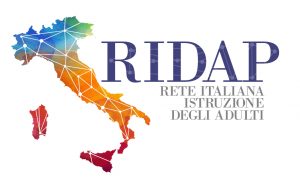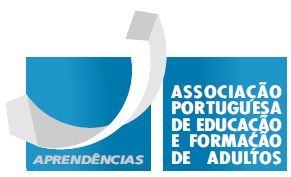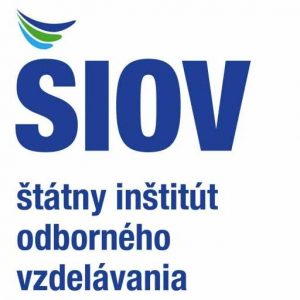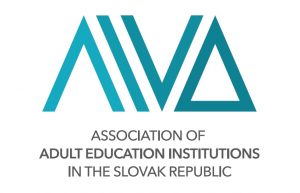Implementation of integrated projects FOR first and second level adult education paths
Guidance
Brief description of the main purposes and contents
The orientation of the adult in his or her reintegration path within the training and employment circuit plays a strategic role among the actions that transversally involve the world of education, social inclusion and active labor policies.
The role of adult education and CPIAs also includes interventions essentially aimed at reducing the gap between the skills possessed and those required in the sectors of the world of work and production (so-called “skill mismatch”).
It is therefore within this complex and articulated framework that the need has emerged to propose and develop interventions aimed at achieving continuity between basic and technical / professional training courses, to increase and strengthen the skills and the level of education of the adult population.
The integration between I and II level adult education paths therefore includes planning actions and didactic interventions aimed at favoring the continuation of the study path of the adult users of the second didactic periods of the first level CPIA, in the technical and professional educational paths.
These interventions are realized through the planning of an integrated annual didactic period, including the study of disciplines intended for the acquisition of key competences for active citizenship, associated with the basic cultural axes (useful for the fulfillment of the education obligations), and modular didactic interventions related to the disciplines characterizing a technical or professional education path.
The use of methodological approaches based on inductive learning, on the laboratory and on the case study, together with the customization of each path, also allows to motivate the adult trainee and to orient him towards the labor market and professional activities.
Reasons why the project / program is considered a “good practice”
The actions envisaged as part of the project interventions can be counted in the category of so-called “good practices”, as they meet various criteria among those established in the framework of Project ONE.
First of all, it is worth mentioning the necessary involvement and participation, in various capacities, of numerous educational institutions (schools in which the second level courses are based, adhering to specific agreements) and of bodies (prison) as subjects partners, cooperating together in order to implement the integration actions of adult education paths, giving them formal value and substantial effectiveness.
As regards the didactic interventions stricto sensu that contribute to the action of integration of the educational paths, they are designed in such a way as to favor the connection between basic pathways and technical and professional education, also playing an important orientation function for the adult user who is the reference target of the CPIA and who is often in a state of serious socio-economic disadvantage and at high risk of social exclusion.
Over the years, control and monitoring tools for project actions have been developed and applied, both in terms of analyzing the results of integrated courses and in terms of detecting incoming training needs.
The monitoring and evaluation actions were also carried out using tools for detecting the level of participation of the students, and for comparing the expectations of the beneficiary users of the interventions and the actions actually proposed.
The integrated path is also the subject of studies conducted by the Interdepartmental Center for Didactic Research, CIRD, of the University of Cagliari, and constant monitoring actions carried out within the CPIA by the coordinating teachers of the project.
Managing authority / organisation
The main organizing body is the Provincial Center for Adult Education of Cagliari and its province (CAMM202003).
CPIA 1 Cagliari has in fact been engaged for years in the experimentation and dissemination of good practices of integration between I and II level education paths.
The integrated projects activated over time have also seen the involvement and participation of numerous other actors who have provided a contribution in different forms and methods.
They include various school institutions belonging to the Karalis CPIA II level network (IIS agrario “Duca degli Abruzzi”, IPSS “Pertini”, ISS “Azuni”, the ISS “Atzeni”) and the same prison administration, as regards the school in the “Ettore Scalas” prison in Uta (Cagliari).
Main target group
Adult people in general.
Source of funding
Public funds (national, regional …).
Stakeholders involved
The subjects involved in various capacities in the realization of the project are:
- CPIA 1 Cagliari (organizing body);
- IIS “Duca degli Abruzzi” of Elmas-Maracalagonis (C.M .: CAIS01400P);
- IIS “Domenico Alberto Azuni” of Cagliari (C.M .: CAIS00200C);
- IPSS “Sandro Pertini” of Cagliari (C.M .: CARF010003).
- “Ettore Scalas” Prison of Uta;
- Regional Center for Research, Experimentation and Development, CRRS & S CPIA 1 Cagliari.
Contribution of the practice in improving / promoting the social inclusion of the beneficiaries
The practices described above help to promote the social inclusion of CPIA trainees through the acquisition of knowledge aimed at consolidating skills that characterize specific sectors of technical and professional education, thus fostering occupational competitiveness and the reintegration of the subjects involved.
The activated actions allow to accompany the adult trainee in the delicate transition between the first level courses of the CPIA and the courses of the second level II didactic period, tracing an ideal line of continuity between the two levels of adult education and intervening with positive results on the complex and vast phenomenon of early school leaving at the end of first level education courses.
The actions taken are also aimed at the social inclusion of particularly fragile individuals, such as Italian and foreign citizens in situations of hardship, and adults subjected to detention measures in prisons.
Elements of the project / program that could be easily transferred to other contexts
The integration project between I and II level education paths represents a model which, after adopting the appropriate changes related to the characteristics and peculiarities of the particular socio-economic and territorial productive context, could be re-proposed and effectively replicated, also in other regional contexts of the country.
A desirable development perspective in more general terms of integration between training and education paths, is instead identifiable in the activation of similar system measures between the courses of the second first-level didactic period (CPIA) and the regional VET courses. Integration that would allow greater adherence between the integrated training offer and the economic vocations of the production context in which the subjects involved will be called to work. In fact, this perspective includes training actions that provide for a time horizon in line with the expectations of immediate employment opportunities, cultivated by a large part of adult users with a high risk of early school leaving.
Other potential target groups to which the project / program could be extended
The project could also be extended through the involvement of further subjects related to the production world (local companies) and the third sector (associations, etc.). These partners could provide a valid tool in the course of the planning actions of integrated and orientation courses, and would be able to involve and intercept further segments of the adult population that so far struggle to get in touch with the Training Offer addressed to it. Such actions would therefore be inherent in the strengthening and dissemination of plural information and planning interventions with an increasingly pressing perspective to favor a unitary and capillary action through the establishment of a Territorial Network for Lifelong Learning.
Practical evaluation carried out
Yes.
Results and measures taken following evaluation
The project was constantly subject to monitoring and analysis of the results achieved during the interventions. The actions undertaken as part of the monitoring of integrated pathways mainly included the analysis of the personal and quantitative characteristics that define the subjects involved (age, origin, gender, number of participants, etc.) in the interventions, the learning outcomes, achieved in itinere and at the end of the study courses, and the continuation in the second level courses.
The analysis of the results highlighted a significant increase in the number of users of the Cagliari CPIA adhering to the integrated courses during the school years and made it possible to record a lower rate of early school leaving of students during subsequent II level courses compared to the data referring to students of the second academic periods.
The actions taken and the results of the analyzes and monitoring conducted during the school years were also the subject of two separate contributions by CPIA 1 Cagliari, presented in the sessions dedicated to the thematic workshops, during the editions of “FierIDA Siena 2019” and “FierIDA online 2021”.
Participation data
The project was launched, in its first edition, during the 2016-2017 school year, initially seeing the involvement of a single group of the second didactic period of the CPIA in the professional course “Services for agriculture and rural development”(about fifteen students). During the following school year the integrated professional agricultural course was the subject of further editions and is still in place. Starting from the 2019-20 school year, other integrated courses have also been launched in the professional sectors “Services for health and social assistance” and “Services for food and wine and hotel hospitality”, thus involving an increasing number of students. Food and wine workshops have seen the active participation of level groups of the Cagliari prison and an experience of integration with technical education in the economic sector has also been launched, “Administration, Finance and Marketing”. During the last year (2020-21) the integrated courses activated have registered the adhesion of about eighty CPIA students, mainly including foreign and Italian users with low schooling rates and a high risk of early school leaving at the end of the second didactic period .
Description of the methods of implementation and any recommendations
The implementation processes of the integration interventions between level I and II pathways currently require the finding of indispensable economic resources for their activation. Resources that may be contained, at least partially, if there is a surplus of staff available by the level II networked institutes. The implementation of the courses and the increase of the integrated training offer represents the main short- and medium-term development objective which, in the absence of adequate and alternative system measures, will make it possible to improve interventions and linking measures between the two levels of adult education at the local level.
Further agreements between USR, regional labor department and CPIA network, would allow the activation of forms of connection and integration between the first level courses and the VET providers in the future.
Project / program website or other online reference resources







